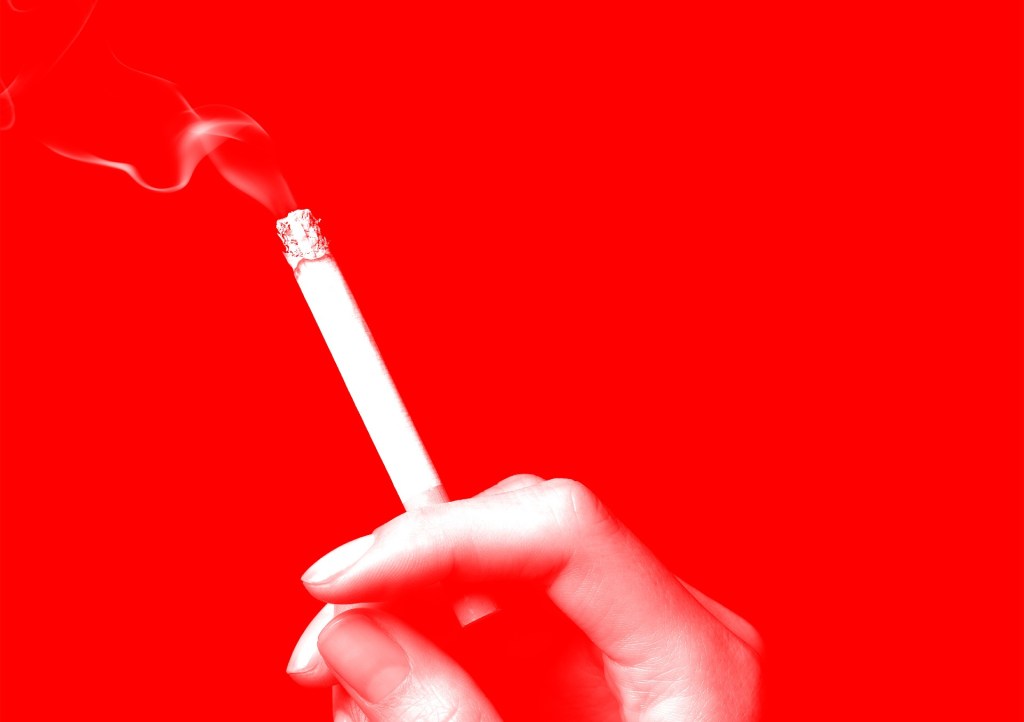“Please don’t stop breathing!” screamed my neighbor from downstairs, then came frantic cries. I grabbed my phone and dialed emergency services as I rushed down to her apartment. When I got there, the repairman lay motionless on the floor. He looked to be around 60, but it was hard to say, as people age too quickly in this part of the world, in the old neighborhoods of Tbilisi, Georgia. Paramedics arrived and tried to revive him, but to no avail.
“Was he a smoker?” one asked. Outside the old Soviet apartment block sat a cardboard box overflowing with cigarette butts. Another paramedic stepped outside to light up.
This happened last week, and prompted me to write this essay in response to Christine Emba’s piece in the New York Times about smoking. She warns against smoking, of course, but frames it as a kind of throwback ritual that invites face-to-face connection, a rejection of the wellness industry, a more “embodied” life. While the argument is thoughtful, it’s written by someone who doesn’t smoke and with a kind of pathos that assumes life is something you can structure, manage, and plan.
Smoking can be a social activity. But speaking as a smoker, it’s more than an activity: It’s a bond formed between people, because you approach life the same way. You take on risk in a world where everybody pays money to stick things in their face to hide wrinkles, to age less, to live longer. Still, notwithstanding its social benefits, smoking itself is primarily a solitary activity. It’s a great way to avoid crowds. It allows moments alone, reflection. It’s a good companion on a walk with your earpods in the streets. It’s best with a glass of wine and after long flights.
But one should never start smoking. It’s bad for you. Your face ages faster, your clothes reek, your teeth and fingers go yellow. Try kissing a nonsmoker. Us, the smokers, rationalize the risks. We love thinking of those who smoked and survived till old age. For example: German Chancellor Helmut Schmidt, who chain-smoked and died at 96. This is our internal rebellion against all the information we’re exposed to about the harms of smoking.
I started smoking when I was 22. I had moved to Chile and hardly spoke any Spanish, and smoking was a way to force people to talk to me away from the noise of the bars. But what started as a social experience soon turned into what I justified as mutiny: I returned to Georgia, and my mother, who quickly smelled smoke on my clothes, said girls shouldn’t smoke. I told her I would quit if my brother did too, whom nobody told to quit.
Then I moved to Washington. Nobody smoked there. There too, it was my way of saying, I go against the Western obsession with healthiness, against the stereotype of this being low-class behavior. And if I am low-class, so be it. And I kept on. All this was a mistake, I knew. But still, I smoked.
In his 1946 essay, “Books v. Cigarettes,” George Orwell calculated that people spend more on tobacco than on books, not because they don’t value reading, but because smoking is an easier way for them to find relief. He understood that people don’t always choose what’s good for them: They choose what gets them through. (He smoked on his deathbed after he was diagnosed with tuberculosis). The internet and scrolling maybe be that for the younger generation. It’s the new cigarette, if you will.
Smoking today is rarely the boozy dinner party ritual of the 20th century, ashtrays overflowing as the room fogs up. What Emba misses is that people now smoke and scroll. The social ritual she romanticizes now goes together with the digital world she says smoking resists. A typical session isn’t a shared pack among friends, but a lone cigarette on the sidewalk, and if smoking once meant leaning on a balcony lost in thought, now it’s standing outside with a phone in hand, the cigarette and the screen feeding distractions. But that doesn’t mean the connection between people is gone. Maybe TV and cinema once made people stay in more too, but it didn’t kill social life and neither will this.
Emba concludes that the answer to avoid being atomized by technology is to live more intentionally, walk without AirPods, drink with a friend, and be present. It’s a nice idea. A very structured one. And a very privileged one. Most people don’t have the luxury of curating their habits or philosophizing about resisting technology. They scroll the feed or smoke because they’re stressed, because it’s a five-minute break from a job they hate, because it’s what they can afford and what’s available.
Here, the book Zeno’s Conscience by Italo Svevo comes to mind. On the surface, it’s about quitting smoking, and it begins with the protagonist, Zeno, announcing his “last cigarette.” He goes to therapy, tracks his habits, and psychoanalyzes himself—all in the service of quitting smoking. But none of it works. Like Zeno’s paradox, his self-improvement is always just out of reach. And that’s the point. The book isn’t really about cigarettes: Instead, it’s about how life doesn’t neatly adapt to logic; logic bends around life. And maybe that’s closer to how most of us actually live.
When the wife of the man who died downstairs arrived, she said he’d felt something was off about his chest and a few days later, he was dead on the job. The same thing happened to my uncle, too: same job, same habit, same heart attack, just two weeks earlier. I doubt either of them spent much time wondering whether they were “connected” or “living with intention.” They came home, lit a cigarette, scrolled a little, and went to bed.
That kind of life—ordinary, unreflective, unambitious—isn’t less than the one Emba describes. Maybe it’s just life. Not wholly disconnected, not wholly connected. But just how things are. Now, I’m sitting with what’s left of my uncle: a box of rolled cigarettes with cheap tobacco. Later, I’ll light one.






Please note that we at The Dispatch hold ourselves, our work, and our commenters to a higher standard than other places on the internet. We welcome comments that foster genuine debate or discussion—including comments critical of us or our work—but responses that include ad hominem attacks on fellow Dispatch members or are intended to stoke fear and anger may be moderated.
With your membership, you only have the ability to comment on The Morning Dispatch articles. Consider upgrading to join the conversation everywhere.